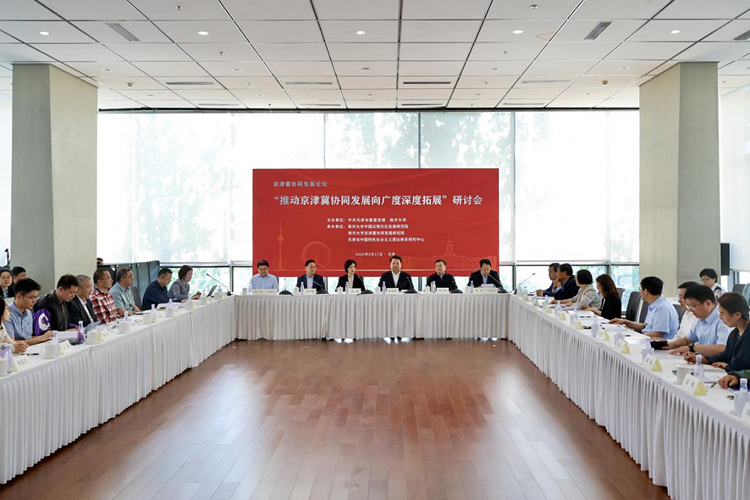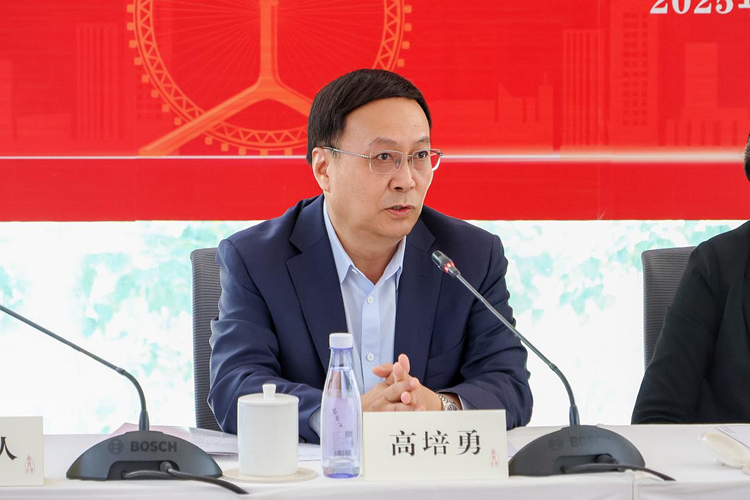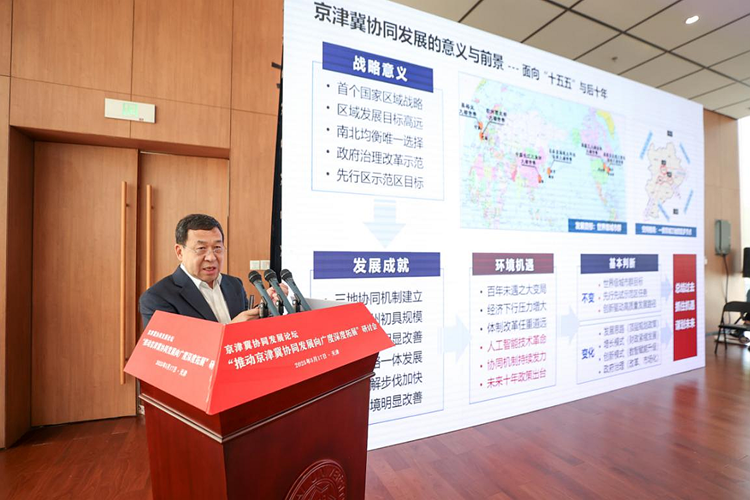Forum on Coordinated Development of the Beijing-Tianjin-Hebei Region Held in Tianjin

On May 17, a symposium titled “Expanding and Deepening the Coordinated Development of the Beijing-Tianjin-Hebei Region”, part of the Forum on Coordinated Development of the Beijing-Tianjin-Hebei Region, was held at Nankai University. Co-organized by the Publicity Department of the CPC Tianjin Municipal Committee and Nankai University, the forum brought together experts and scholars from Beijing, Tianjin, and Hebei to contribute insights and proposals aimed at expanding and deepening regional coordinated development and empowering the region into a pilot zone in pursuing Chinese modernization.
Shen Lei, Member of the Standing Committee of the CPC Tianjin Municipal Committee and Director of the Publicity Department of the CPC Tianjin Municipal Committee, and Chen Yulu, President of Nankai University, attended the opening ceremony and delivered speeches. Other experts and scholars including: Gao Peiyong, Member of the Academic Division of the Chinese Academy of Social Sciences (CASS) and former Vice President of CASS; Sun Jiuwen, Professor at the School of Applied Economics, Renmin University of China, and Honorary President of the National Institute of Economic Geography; Tian Xuebin, President of Hebei Open University; Li Guoping, Director of the Beijing Development Institute, Peking University; Xiao Jincheng, Chairman of the China Society of Territorial Economists and former Director of the Institute of Spatial Planning & Regional Economy at the National Development and Reform Commission; Wu Yiqing, former Vice President of Hebei University of Economics and Business and Director of the Hebei Coordinated Innovation Center for BTH Coordinated Development; Wang Shuang, Vice President of the Tianjin Academy of Social Sciences; and Chen Lu, Director of the Economic Research Institute at the Hebei Academy of Social Sciences and Chief Expert at the Hebei Research Center for the Coordinated Development of the Beijing-Tianjin-Hebei Region as well as Xu Zhong, Deputy-director of the Publicity Department of the CPC Tianjin Municipal Committee, were also in attendance. The opening ceremony was chaired by Liang Qi, Deputy Secretary of the CPC Nankai University Committee.

Gao Peiyong delivered a keynote speech titled “Strategic Considerations on Advancing the High-Standard and High-Quality Development of Xiong'an New Area”.

At the forum, Nankai University unveiled its latest research outputs on the coordinated development of the Beijing-Tianjin-Hebei region: the Nankai Index for the Coordinated Development of the Beijing-Tianjin-Hebei Region 2025 and the “Beijing-Tianjin-Hebei Big Data Platform”. The launch was presented by Liu Binglian, Dean of the Beijing-Tianjin-Hebei Coordinated Development Research Institute at Nankai University and Dean of the College of Economic and Social Development at Nankai University.
The Nankai Index for the Coordinated Development of the Beijing-Tianjin-Hebei Region 2025 was complied by the Beijing-Tianjin-Hebei Coordinated Development Research Institute and features a composite index along with nine sub-indices, covering key areas of regional coordinated development. It provides a multidimensional evaluation and comparison of 13 cities across Beijing, Tianjin, and Hebei and offers a quantitative framework for assessing the current state of coordinated development, serving as a scientific foundation for overall evaluation, sector-specific advancement, real-time monitoring, trend forecasting, and policy formulation.
The Beijing-Tianjin-Hebei Big Data Platform represents a cutting-edge tool for both policy research and theoretical research. Built on advanced data visualization technologies and large models, it enables key functions such as real-time monitoring, economic early-warning, policy evaluation, target adjustment, and trend forecasting. Since its inception, the platform has aggregated a comprehensive dataset encompassing macro- and micro-level information from 13 cities across the region, covering 74 subcategories within 8 major categories, including the economy, ecology, and policy from 2014 to the present. It is currently applied to big data analysis of policy and regulatory texts, as well as the visualization of intra- and inter-regional flows of investment, patents, and trade. By providing systematically categorized, methodologically advanced, temporally and spatially visualized, and continuously updated high-quality data, the platform aims to support the broader and deeper advancement of coordinated development across the region.
(Edited and translated by Nankai News Team.)









